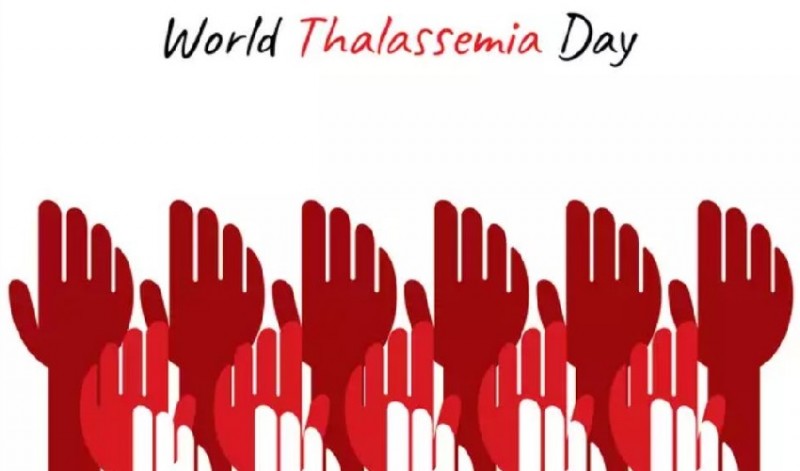
Every year, on May 8th, the world comes together to observe World Thalassaemia Day. It's a day dedicated to raising awareness about thalassaemia, a genetic blood disorder characterized by reduced hemoglobin and fewer red blood cells than normal. While there's no cure for thalassaemia, adopting a healthy lifestyle and ensuring proper nutrition can significantly improve the quality of life for those affected. In this article, we'll delve into the essential nutrients crucial for preventing thalassaemia and maintaining overall health.
Iron-Rich Foods:
Iron deficiency is a common concern for individuals with thalassaemia, as their bodies struggle to produce sufficient hemoglobin. Incorporating iron-rich foods into your diet can help combat this deficiency. Opt for sources such as lean meats, poultry, fish, beans, lentils, tofu, spinach, and fortified cereals. Consuming vitamin C-rich foods like oranges, strawberries, and bell peppers alongside iron-rich foods enhances iron absorption, making it more readily available for your body to utilize.
Folate and Vitamin B12:
Folate (vitamin B9) and vitamin B12 are essential for red blood cell production and DNA synthesis. Individuals with thalassaemia often have an increased need for these vitamins due to the rapid turnover of red blood cells. Incorporate folate-rich foods like leafy greens, asparagus, citrus fruits, and fortified grains into your meals. Additionally, include sources of vitamin B12 such as fish, shellfish, poultry, eggs, and dairy products to ensure optimal levels of these crucial nutrients.
Vitamin D:
Vitamin D plays a vital role in bone health and immune function, which are particularly important for individuals with thalassaemia who may experience bone disorders and increased susceptibility to infections. Spend time outdoors in sunlight, as sunlight exposure triggers vitamin D synthesis in the skin. Include vitamin D-rich foods like fatty fish (salmon, mackerel, sardines), fortified dairy products, and egg yolks in your diet. If necessary, consult your healthcare provider about vitamin D supplementation.
Calcium:
Calcium is essential for bone health and muscle function, both of which can be compromised in individuals with thalassaemia. Incorporate calcium-rich foods such as dairy products (milk, cheese, yogurt), fortified plant-based milk alternatives, tofu, almonds, and leafy greens like kale and collard greens into your diet. Aim for adequate calcium intake to support bone density and overall health.
Omega-3 Fatty Acids:
Omega-3 fatty acids possess anti-inflammatory properties and support heart health, which is crucial for individuals with thalassaemia who may be at an increased risk of cardiovascular complications. Include sources of omega-3 fatty acids such as fatty fish (salmon, mackerel, trout), flaxseeds, chia seeds, walnuts, and hemp seeds in your diet. Consider incorporating fish oil supplements under the guidance of your healthcare provider to further boost omega-3 intake.
Hydration:
Proper hydration is essential for everyone, but it's especially important for individuals with thalassaemia, as dehydration can exacerbate symptoms such as fatigue and weakness. Aim to drink plenty of water throughout the day, and consider consuming hydrating foods like fruits and vegetables with high water content, such as watermelon, cucumber, and oranges.
On World Thalassaemia Day, let's emphasize the importance of nutrition in preventing and managing thalassaemia. By incorporating nutrient-rich foods into your diet and maintaining a healthy lifestyle, you can support optimal health and well-being, empowering yourself or your loved ones living with thalassaemia to lead fulfilling lives. Remember to consult with healthcare professionals or registered dietitians for personalized nutrition guidance tailored to individual needs. Together, let's raise awareness and promote better health outcomes for those affected by thalassaemia.
Empowering Health on World Thalassaemia Day: Strategies for Healthy Haemoglobin Levels
Changing Lives. Shaping Tomorrow: How to Honor Nurses on International Nurses Day 2024